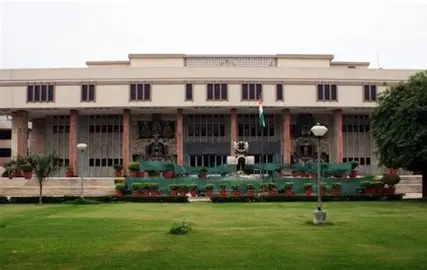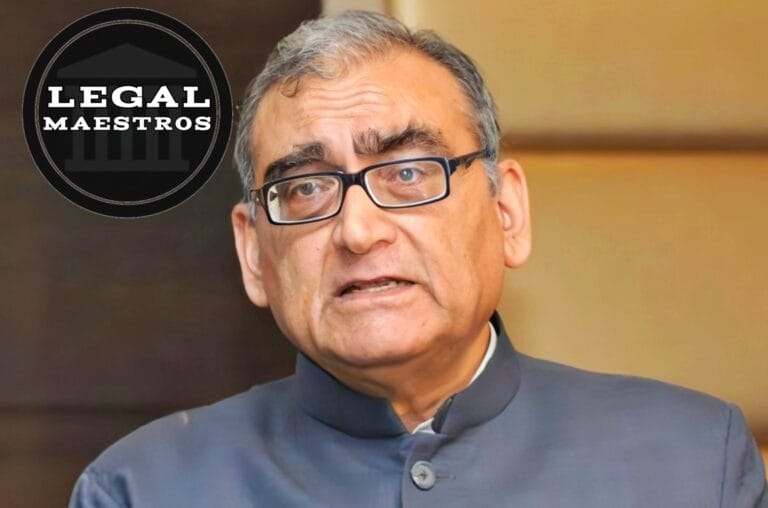
Prosecution for Defamation: Understanding Section 222 of the Bharatiya Nagarik Suraksha Sanhita, 2023
Prosecution for Defamation: An Analysis of Section 222 of the Bharatiya Nagarik Suraksha Sanhita, 2023
Introduction
The Bharatiya Nagarik Suraksha Sanhita, 2023, that abolished the Criminal Procedure Code, has become operational with effect from 1st July 2024. One of the important provisions contained therein is Section 222 regarding prosecution for defamation under the Bharatiya Nyaya Sanhita, 2023. Cases relating to defamation are sensitive in nature, particularly if such cases concern senior public persons or individuals who may not have the liberty of speaking up, for instance, children, differently-abled individuals, or others unable to speak on their own account owing to infirmity or custom.
For More Updates & Regular Notes Join Our Whats App Group (https://chat.whatsapp.com/DkucckgAEJbCtXwXr2yIt0) and Telegram Group ( https://t.me/legalmaestroeducators ) contact@legalmaestros.com.
Defamation and Who Can Lodge a Complaint (Section 222(1))
According to Section 222(1), no court shall take cognizance (official notice) of an offence punishable under Section 356 of the Bharatiya Nyaya Sanhita, 2023, unless a complaint is lodged by the person aggrieved by the offence. Defamation, as dealt with in Section 356, is causing harm to a person’s reputation by making false statements. The affected person has to lodge a complaint to start proceedings.
There are exceptions in situations where the aggrieved individual might not be able to lodge the complaint. These include:
A child
A person of unsound mind
An intellectual disabled person
A person who is ill or too infirm to lodge the complaint
A woman who, because of local traditions, is not required to go out in public
In such a situation, another individual may submit a complaint on their behalf with the leave of the court. For instance, if a child has been defamed, a relative or guardian may submit the complaint with the leave of the court.
Prosecution of Defamation Against Public Officials (Section 222(2))
Section 222(2) pertains to defamation of high public functionaries. This involves the President of India, Vice-President, Governors, Union Territory Administrators, Union or State Ministers, or other public officers. In such instances, a Court of Session may take cognizance of the offence without the case being committed to it by a lower court, subject to a Public Prosecutor making a written complaint.
The complaint should detail the facts of the offence, the character of the defamation, and sufficient description so that the accused may recognize the charges. For example, if a governor of a state is defamed by publication in the media of an untrue statement, the Public Prosecutor may present the complaint to the Court of Session, but only if all legal requirements are fulfilled.
Role of Sanction Before Filing a Complaint (Section 222(4))
A Public Prosecutor can’t initiate a complaint of defamation against a government servant without earlier approval from the government:
When the person defamed is or was the Governor of a State or a Minister in that State’s government, the complaint should obtain the approval of the State Government.
If the person defamed is a state government employee and a public servant, sanction has to come from the State Government.
In all other cases, the Central Government needs to provide the sanction.
This ensures that there is a layer of protection for public officials from frivolous defamation complaints, while still allowing the prosecution of genuine cases.
Time Limits for Filing Defamation Complaints (Section 222(5))
There is a strict time limit for filing defamation complaints involving public officials. Section 222(5) provides that no Court of Session shall take cognizance of the offence except on complaint made within six months from the date the offence is said to have been committed. For instance, if a defamatory remark was made against a Union Minister in January, a complaint should be made by July of the same year for the court to consider it.
Right of Aggrieved Person to File a Private Complaint (Section 222(6))
Section 222(6) makes it clear that nothing in the section shall take away the right of the aggrieved person to file a private complaint before a Magistrate. Even if no complaint has been filed by a Public Prosecutor, the defamed person can approach a magistrate directly and file a case for defamation.
This implies that citizens still retain the right to pursue justice regardless of government or public prosecution procedures. For example, if a public servant chooses not to utilize the Public Prosecutor, they can still lodge a complaint as a private individual in the local court.
Conclusion
Section 222 of the Bharatiya Nagarik Suraksha Sanhita, 2023 lays out a clear framework for prosecuting defamation cases, balancing the rights of individuals and public officials. By specifying who can file complaints, setting time limits, and requiring government sanction for prosecuting public officials, it ensures that defamation laws are applied judiciously and fairly.
For a more in-depth appreciation of the interrelationship between Section 222 and Sections 220 and 221 of the Bharatiya Nagarik Suraksha Sanhita, 2023, you may refer to our earlier articles on Live Law Hindi, which have exhaustively analyzed the procedural aspects of these legislations.






